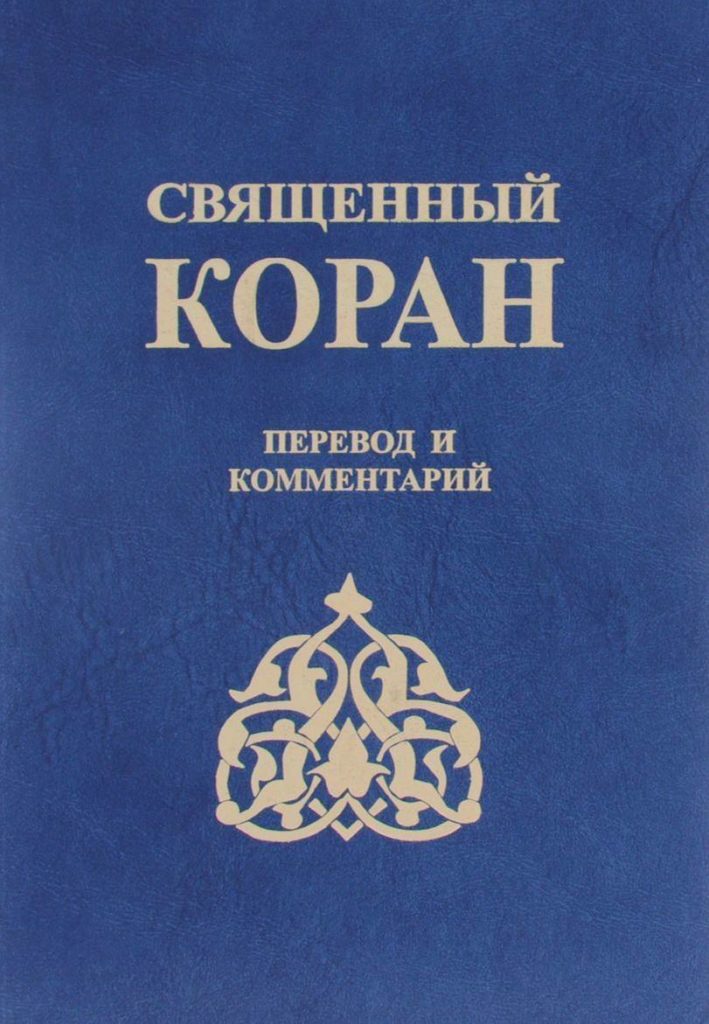This week’s thread focuses on a Shiite foray into Qur’an translation into the Russian language. While the overwhelming majority of Muslims in Russia are Sunnis, there is also a sizeable number of Shiite Muslim communities scattered across the Russian Federation. These communities are mostly made up of ethnic Azerbaijanis and Lezgins and are scattered in various cities, but there is also a more widespread, proportionally larger community in the southern part of Dagestan. Nazim Zeynalov (b. 1979), the Qum-educate Shiite theologian and author of this week’s Qur’an translation, “SviashchennyiQur’an: Perevod i Kommentariii”, published in 2015, was born in Derbent, a city located in the Republic of Dagestan which traces its Muslim history back to the Arab conquest of the city in 642–643 CE. Derbent has a large Shiite Twelver population, in no small part due to the historical promotion of Shiite interests by the Shiite Buyid dynasty (934–1062 CE).
Despite being born into a Soviet environment, Zeynalov was raised in a religious family and showed a keen interest in the Qur’an from an early age. He spent ten years in Qum, the intellectual center of Shiite education, where he received his PhD from Al-Mustafa International University. With this background, it is perhaps not surprising that Shiite theological tendencies can be clearly traced in Zeynalov’s interpretive choices and interpolations into the text in his Qur’an translation. These reflect such central tenets of Shiism as the idea of succession (walāya), and the Imamate of the Ahl al-Bayt and their infallibility. The translation also provides abundant access to the Shiite exegetical tradition, as Zeynalov has thoroughly supplemented his translation with information from authoritative Shiite commentators in the footnotes. For instance, works such as al-Ṭabaṭabāʾī’s Tafsīr al-Mizān, al-Ṭabrisī’s Majmaʿ al-bayān, and al-Qummī’s Tafsīr are only a small sample of the many specifically Shiite sources referenced in the translation. Given this strong Shiite tendency, it is unsurprising that this translation is approved by the Center for Translation of The Holy Quran (Tarjumān-e Waḥy); moreover, when it was first published, it was also one of the winners of the 23rd annual Tehran International Book Fair.
However, it is also possible to find some references to Sunni sources, such as al-Durr al-manthūr by al-Suyūṭī, in the footnotes. Through such references, the translator incorporates Sunni interpretations that, viewed contextually, could be read as confirming the Shiite theological outlook. The translation does not focus much on legal issues but rather emphasizes the ‘secret meanings’ of the Qur’an, and it accentuates its more spiritual and edificatory dimensions through reference to the words of the Imams. For the translator, it was also important to emphasize ‘that the Islamic Umma of Russia is in dire need of a translation of the Qur’an that would exclude the possibility of extremist interpretation. This principle was a basis for my work’, as Zeynalov clarified in an interview after receiving the Iranian ‘Book of the Year’ award (http://www.religare.ru/2_108612.html). Zeynalov’s emphasis on this aspect of his translation is a clear illustration of the way that the ‘security’ agenda that dominates public discourse about Islam in Russia sets the parameters of debate and dictates how the Qur’an has to be translated and framed in public (re)presentations.
This translation has already been published in several editions, including editions published by an Russian academic publisher as well as an Iranian edition that was sold in Russia. In common with many other Qur’an translators, Zeynalov does not sees his work as being perfect and complete; thus it is possible to trace various changes through the succeeding editions. In addition to the print editions, Zeynalov’s translation is included in a Russian Shiite online resource that includes a collection of Qur’an translations (https://quranonline.ru), alongside Ali Quli Qarai’s English translation and Mirzə Əli Meşkini Ərdəbili’s Azerbaijani edition, as well as a Russian transcription of the Qur’an, and Maytham al-Tammar’s Qur’an recitation, which is popular among Shiites.
It would be fair to say that although ‘SviashchennyiQur’an: Perevod i Kommentariii’ has not been met with wide public attention compared to some other translations, it has nevertheless provoked some counterreaction in some regions of Russia. For instance, the Muslim Spiritual Administration of the Chechen Republic felt compelled to publish an official statement condemning this translation, which they see as a threat to the integrity of Sunni Islam. Given this kind of polemics around the theological outlook of Qur’an translations, it is clear that the practice of translating the Qur’an has a political dimension in the post-Soviet era. At a time when Russian Qur’an translations are blossoming, the Russian Shiite community regards Qur’an translation as crucial to self-assertion and self-expression, and as a marker of their community identity.
For more examples of the debates and polemics see:
https://www.dumchr.ru/single-post/2016/11/18/шиитский-перевод-корана-не-рекомендовано
http://islamoved.ru/2016/nauchnaya-retsenziya-na-pervyj-shiitskij-perevod-korana/
https://shia.world/kommentarii-k-retsenzii-na-pervyj-shiitskij-perevod-korana/
https://www.kavkaz-uzel.media/articles/280146/
Elvira Kulieva

